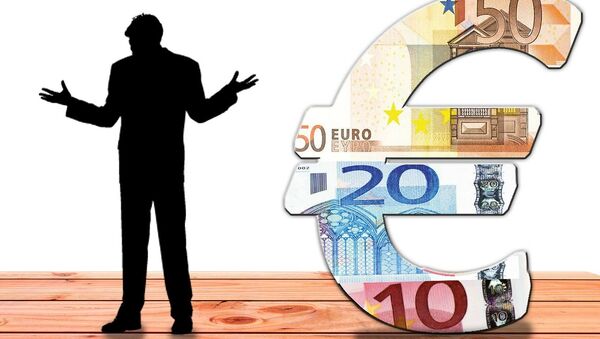While May pledged to give British companies the "maximum freedom to trade with the EU" as part of a new "global Britain," many European figures weren't impressed with the prime minister's speech.
"At least now we know what UK wants #HardBrexit," tweeted the Czech Republic's Secretary of State for EU affairs, Tomas Prouza.
UK's plan seems a bit ambitious — trade as free as possible, full control on immigration…where is the give for all the take?
— Tomas Prouza (@CZSecStateEU) January 17, 2017
"UK's plan seems a bit ambitious — trade as free as possible, full control on immigration… where is the give for all the take?"
Hard Brexit 'Worst Possible Solution'
Continuing with the sentiment, Marcel Fratzscher, president of Germany's DIW economic institute described May's plans as an "illusion."
Mays #Brexit Versprechen eine Illusion; wieso Drohung an EU wird nicht funktionieren wird. My take https://t.co/Dxh5NcqQ3t #in
— Marcel Fratzscher (@MFratzscher) January 17, 2017
"Theresa May's promise to turn Britain into a 'global trading nation' after Brexit is an illusion, just like Donald Trump's promise to make America great again with the help of protectionist measures. May's compatriots need to prepare to be very disappointed. A 'Hard Brexit' is the worst possible solution economically."
.@Theresa_May has made clear that she is determined to use Brexit to turn Britain into a bargain basement tax haven on the shores of Europe. pic.twitter.com/8LIjz7Y1Hu
— Jeremy Corbyn MP (@jeremycorbyn) January 17, 2017
"With her announcement of a Hard Brexit, Theresa May has set Great Britain's gradual economic decline in motion."
"Theresa May's announcement is a hidden threat to Europe and Germany that she will harm her European neighbors if they don't grant Britain any special treatment."
Former Swedish Prime Minister Carl Bildt was also left disappointed by May's rhetoric, describing it as a "retreat from Europe."
I regret the approach the UK government has taken. I think most of the EU would have preferred a closer relationship with the UK. #wef17
— Carl Bildt (@carlbildt) January 17, 2017
May's combative tone, and the subsequent response from European political and business figures, has led many to question the respective strategies of both parties, with official talks set to begin once the UK triggers Article 50, expected by the end of March.
Hans Joerg Schelling, Austria's Finance Minister, said it could take much longer than the two-year divorce period to negotiate a deal with Britain, warning that the complexities of could see the deal take "five years" to complete.
Germany, Ireland Remain Cautious
Not all of the European response was negative, however, with German Foreign Minister Frank-Walter Steinmeier welcoming May's call to maintain a constructive relationship with the EU.
"We too want the best, closest and most trusting relationship and wish for constructive negotiations with this goal. But our line is, and remains: the negotiations can begin only when Great Britain has given official notification of its desire to leave."
A clear, strong plan for Brexit from @theresa_may for an open, outward looking Britain. We are a global nation.
— Mark Prisk MP (@PriskMark) January 17, 2017
The Irish government, seen by many as the country that stands to potentially lose the most as a result of Brexit, also released a cautious statement in reaction to May's speech.
"The Government is under no illusion about the nature and scale of the Brexit challenge. The Government is acutely aware of the potential risks and challenges for the Irish economy and will remain fully engaged on this aspect as the negotiations proceed."


